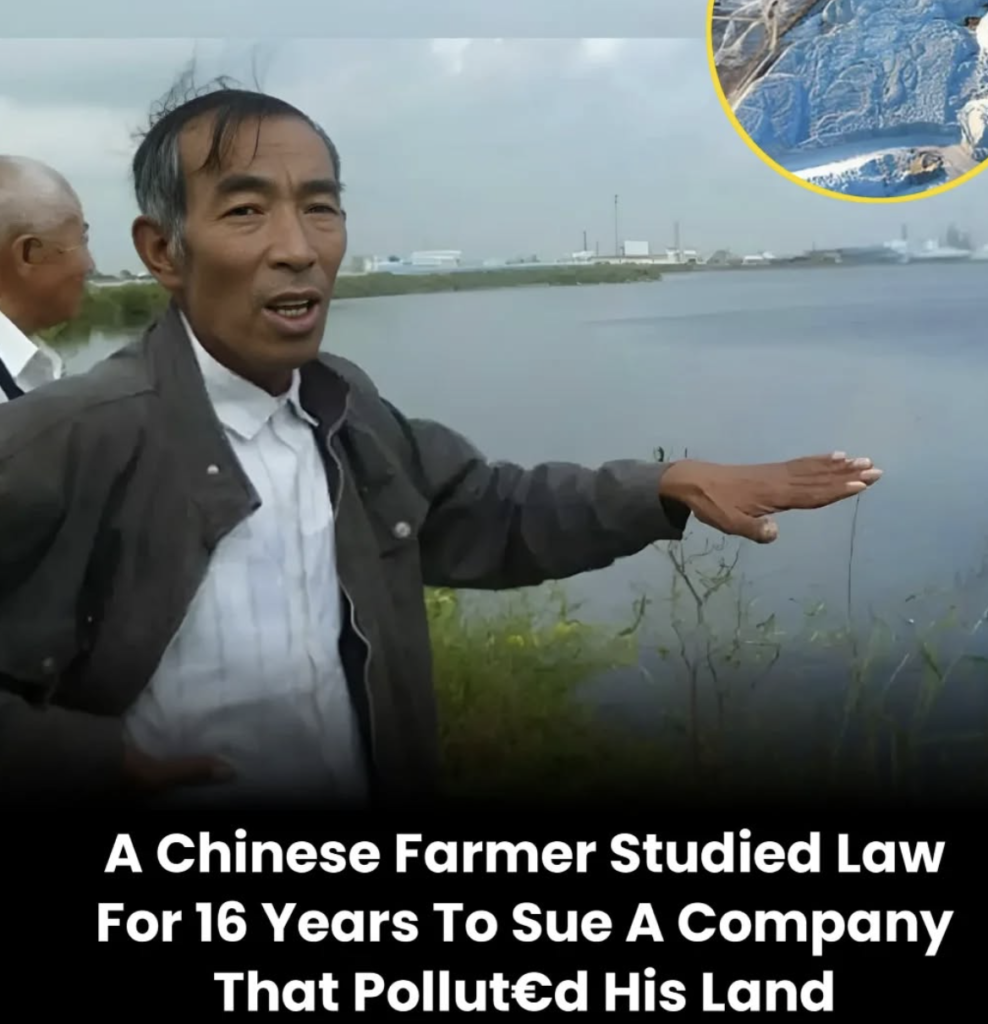Where there is a will, there is a way. This age-old adage has inspired countless individuals to rise against adversity, but few stories embody its spirit as profoundly as that of Wang Enlin. A humble farmer from China, Wang’s extraordinary journey to justice is a testament to determination, resilience, and the power of self-education.
The Beginning of the Struggle
Wang Enlin lived a peaceful life farming in Yushutun village, located in the Heilongjiang province of northeastern China. However, his life took a dramatic turn in 2001 when a major chemical company began discharging hazardous industrial waste into the farmland. The pollutants rendered Wang’s once-fertile land barren, threatening his livelihood and the well-being of his community.
The villagers—many of whom were poor farmers—were left powerless against the corporate giant. They lacked the resources and knowledge to challenge the company in court. But Wang refused to accept defeat. Determined to fight for his rights and protect his homeland, he made a bold decision to study law—despite never having completed formal education beyond elementary school.
Teaching Himself the Law
Wang’s journey was far from easy. With limited funds, he couldn’t afford legal textbooks, so he borrowed them from a local bookstore and copied sections by hand. Over the course of 16 years, Wang tirelessly educated himself on environmental law and regulations, often relying on whatever resources he could access. He would spend his evenings reading and understanding legal texts while continuing to farm during the day.
Wang’s dedication did not go unnoticed. As he gained legal knowledge, he began organizing the villagers and collecting evidence against the chemical company. His grassroots efforts united the community in their fight for justice.
The Legal Battle
Armed with his self-taught expertise, Wang filed a lawsuit against the Qihua Group, the chemical company responsible for the pollution. The odds were stacked against him; he was a solitary farmer challenging a wealthy and influential corporation. But Wang’s perseverance paid off.
In 2017, after years of legal proceedings, the court ruled in favor of Wang and his fellow villagers. The Qihua Group was ordered to compensate the victims for the environmental damage they had caused. This landmark victory not only restored hope for the affected farmers but also highlighted the importance of accountability and environmental protection.
A Legacy of Resilience
Wang’s story has since become a symbol of resilience and determination. His actions remind us that no obstacle is insurmountable when one has the will to overcome it. Wang’s fight wasn’t just about his land; it was about standing up for justice and the environment—issues that resonate globally.
Today, Wang Enlin’s name is celebrated as an environmental hero, proving that one person’s courage can inspire change on a larger scale.
FAQs
Q1: What motivated Wang Enlin to study law?
Wang Enlin was motivated by the pollution of his farmland by a chemical company, which jeopardized his livelihood and that of his community. Determined to seek justice, he taught himself law over 16 years.
Q2: What challenges did Wang face during his legal journey?
Wang faced numerous challenges, including a lack of formal education, limited financial resources, and the daunting task of standing up against a powerful corporation.
Q3: What was the outcome of Wang Enlin’s lawsuit?
In 2017, Wang successfully won the case against the Qihua Group. The court ordered the company to compensate the villagers for the environmental damage caused.
Q4: What impact did Wang’s actions have?
Wang’s actions united his community, brought attention to environmental issues, and set a precedent for holding corporations accountable for pollution.

